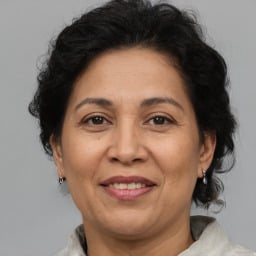Some of the questions in the assessment are as follows:
- Describe the language and imagery which is used by defence professionals.
- Describe the how and why the gender matters within political practices.
- Discuss about critic over the Western feminist scholarship's approach to the third world women.
Introduction
In this response paper I will analyse and explore three articles relating to feminist international relations. The first article which is selected investigates the language and imagery which is used by defence professionals. The second article discusses about how and why the gender matters within political practices. While article third is about critic over the Western feminist scholarship's approach to the third world women.
Article 1: Sex and Death in the Rational World of Defence Intellectuals
The first article which I aim to explore is by Carol Cohn (1987). In this article, Cohn has divided her experience of interaction with defence intellectuals in four stages. In the first stage, she has presented her experience of listening to the language which defence intellectuals used in their day. In the second section, Cohen discussed her experience while learning to this language with the aim of effective converse with defence professionals. The third and fourth section of this article were revolved around interpreting this language and understand the terror behind it. This article has emphasised on euphemisms which is used by these professionals for sex and death. The main question which is being addressed in this article is the reason behind euphemism and bluntness behind sensitive topics such as sex and death by defence intellectuals. The core argument presented by the author in this article is that defence professionals are surrounded by nuclear bombs and deaths all day due to which they have become abrupt about death. Author has also justified this argument with the language which defence people use; as human death is often referred as “collateral damage†by these professionals (pg. 691). Another argument which author has highlighted in this article is that the reason behind euphemism for sex is the dominance of males in defence mechanism. Majority of the defence intellectuals are males due to which they use a language in which they ate used to communicate. In section one, Cohn shared her experience of communicating with a defence professor where he referred India's explosion of a nuclear bomb as “losing her virginityâ€. Author has also argumented that learning technostrategic language is a transformative process rather than addictive as it helps an individual to add a new set of words in vocabulary.
Along with the arguments highlighted above, there were few assumptions as well which author has made in her article. Cohn has stressed in her article that if a statement is made by an intellectual having precise knowledge and experience then their statements cannot be distorted.
By exploring each section of this article, it has been seen that this article has various strengths as it highlights the inner world in which defence intellectuals live. These strengths are the explorative evaluation of language dialogues which these professionals use which is often referred as sexualised language. Some of these dialogues are even reconnoitred by Cohen such as erector launchers and deep penetration. Apart from the lingual strengths, the efforts of Cohen to understand this language has provided her article a strength as well. There are few weaknesses of this article as well which can include excessive use of metaphors and jargons.
The exploration of this article has highlighted a counter argument that what if even after learning defence intellectuals' language, one can notice no relevance. This counter has created to the argument presented by a professional to Cohen which she has presented in her article (pg. 716). From overall analyses of this article it has concluded that the strengths of this article can easily overcome weakness of this article.
Worried for online essay help? Get our experts Help Now!
Article 2: Sex or Gender? Bodies in World Politics and Why gender matters
This paper is written by Laura J. Shepherd (2015), over the article named as Sex or Gender? Bodies in World Politics and Why gender matters. The main question behind this article is that why and how the gender matters while interrogating several conception of body in global politics. This article put emphases over the gender matter within the global politics. As it is not possible to ignore the manner gender inform as well as affect the practices related with the world tourism. This is so because a gender is not only about the identity or the manner in which people look at the world as per the gandering global politics but also depend over the logic which is related with the global politics.
Laura J. Shephered strengthen this article by exploring the issue of gender or body by suggesting that the relationship between gender and sex is not as much simple or straightforward which is commonly presented by people in politics. Further explain it by providing his assumption that the human beings are divided into two distinct category that are based on physical form (morphism). This difference mainly develop the world in which one think about the social as well as political event and kind of relationship that people mainly conceive of being to do with body such as parenting, marriage ceremonies etc. As the separation mainly occurs at sub conscious level and the preconceptions related with bodies directly influence what we eat, sports we like to play, people that can remain in our circle etc.
But the weakness of this article is that the researcher made an argument which is right that it is very comforting that body is something that one can not change or it is something that doesn't affect the the social as well as political lives. The conventional contemporary theories of international relation not tell much about the bodies because individual mainly do not matters as it consider only collectives of individual such as nations feature. But in reality the body or gender is consider by the people while taking some action toward the political practices. Additionally the global politics take body seriously as it require that one must think carefully about ways in which body manifests within our understanding of international relations.
From the evaluation of this article the counter argument has been identified that there remains different perspectives over the relationship between the gender and sex. With the help of providing this information, researcher wants to encourage people to develop a feminist curiosity regarding the study as well as global politics.
Article 3 : Under Western Eyes: Feminist Scholarship and Colonial Discourses
This article is written by Chandra Talpade Mohanty (1988), over a title Under Western Eyes: Feminist Scholarship and Colonial Discourses. The main question over which research put emphases is that the Western feminist scholarship reduced all women top a third world into a singular or collective at another point. Hence the article is depend over the approaches to the third world women as well as feminism. While performing this study it put light over some facts that the Western feminism holds a habit of treating 3rd world women as homogeneous group which means that the feminist scholars use to see this third world women essentially same.
It mainly focuses over the counter argument where it is claimed that the homogeneous approach to the non-western women toward the act of colonialism within the Western feminist discourse. This concept is defined as the relation of the structural domination and suppression of the heterogeneities of women within the third world, colonizing related with the forming into the homogeneous category related with the western scholarship to use.
The strengths of Mohanty's (1998) includes the critique which author has done. In this article, author has critiqued various scholars including Fran Hosken, Juliette Minces, Maria Cutrufelli Beverly Lindsay, and Patricia Jeffery which has made this article reliable for its readers. Other strengths of this article includes the use implied model by which author as focused upon relationship among power and struggle through which females of third world go through. Apart from these strengths, there were few weaknesses in this article as well which were highlighted due to uncritical use of methodologies. Author has categorised women in this article and referred them as victims of male violence and of colonial process. This biased approach of Under Western Eyes is the most influential weakness of this article.
By effective exploration of this article, a counter argument has been created that not only the married women but also the unmarried women are also the victims of familial system and colonial process. This counter has been made to the argument which Mohanty has presented in the article
Conclusion
For this reading, my overall conclusion is that author has exaggerated the victimisation of women by colonial process.
All the three readings which are explored above are related as their main argument revolved around the feminist international relations. The similarities which were seen in all three articles was its female author which sees the world from their third eyes in which women are generalised as victims. Approach used by each author are contrasting in their nature as all the authors has their own viewpoints. According to my opinion, the arguments of first article by Cohen undermine the argument of third article by Mohanty as Cohen has supported the male hypocrisy to support the defence profession but Mohanty has opposed this hypocrisy for male dominant world. These articles are precisely contrasting to each other and are convincing at their own levels. Want to get Assignment help. Talk Our Exper Now!!!
REFERENCES
- Aistrope, T. and Fishel, S., 2020. Horror, Apocalypse and World Politics. International Affairs, pp.1-25.
- Bano, S., 2020. LITERATURE AS A TRANSITIONAL FORCE IN UPLIFTING DALITS & OTHER MARGINALIZED CLASSES IN INDIA. ANGLISTICUM. Journal of the Association-Institute for English Language and American Studies.8.
- Cohn, Carol (1987) ‘Sex And Death In The Rational World Of Defence Intellectuals,' Signs 12 (4): 687-718University library item.
- Mohanty, Chandra Talpade (1988) ‘Under Western Eyes: Feminist scholarship and colonial discourse', Feminist Review,vol.30 (1): 61-88
- Shepherd, Laura J. (2015) ‘Sex or Gender? Bodies in Global Politics And Why Gender Matters' in Laura J. Shepherd (ed) Gender Matters in Global Politics: A Feminist Introduction to International Relations, 2nd edition, London: Routledge
- Wibben, A.T., 2020. Everyday Security, Feminism, and the Continuum of Violence. Journal of Global Security Studies. 5(1). pp.115-121.
Related Service: Introduction to Business studies port folio




















